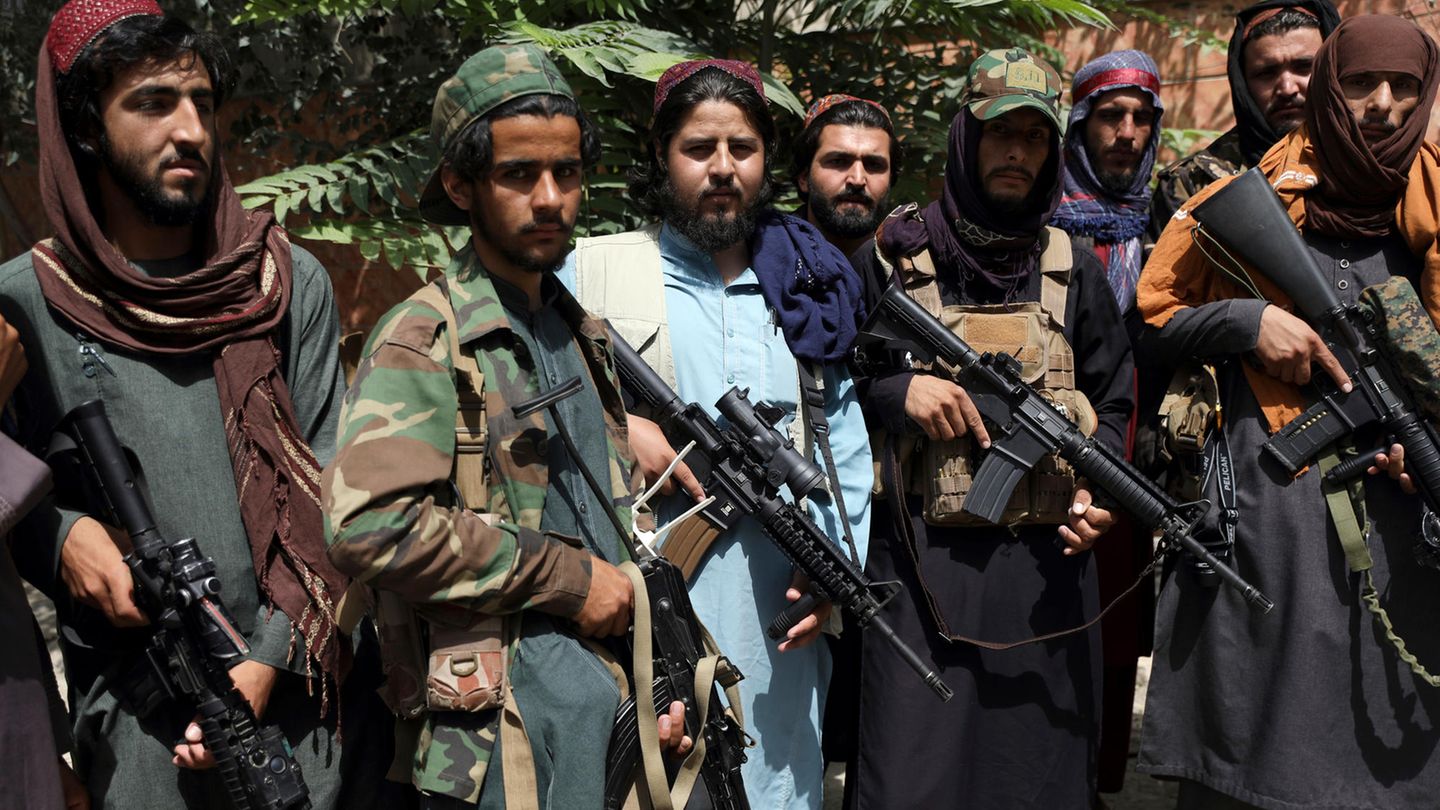The Taliban’s interim government shows that the Islamists still don’t believe in inclusion and rely on people from the 1990s. The pragmatists among them don’t like it at all – and friction is growing.
After the takeover of power in Afghanistan and the establishment of a transitional government, tensions appear to be growing among the Taliban. A good week ago, the Islamists presented a cabinet that commemorates their tough rule in the 1990s. They surprisingly made the little-known Mullah Mohammed Hassan Achund – a founding member of the Taliban – head of government, and Mullah Jakub, the eldest son of the notorious, deceased Taliban chief Mullah Omar, as defense minister. Sirajuddin Hakkani, head of the notorious Hakkani network, which has been blamed for some of the cruelest attacks in Afghanistan, and one of the most wanted men in the US investigative authority, the FBI, has been appointed interior minister.
Mullah Abdul Ghani Baradar, who was Deputy Head of the Taliban and who led negotiations with the United States in 2020 on the withdrawal of American troops in Doha, Qatar, was only given one of two posts as Achund’s deputy.
TV appearance refutes rumors of Baradar’s death
The formation of the government has intensified the friction between pragmatists and ideologues in the Taliban leadership, (AP) citing two Afghans who are familiar with the power struggle. The scramble took place behind the scenes, but rumors of a violent confrontation between the two camps quickly spread, including allegations that the leader of the pragmatic faction, Baradar, was in a shootout between rival groups within the Taliban in the presidential palace in Kabul was fatally injured.
The rumors reached such intensity that on Monday the Taliban felt compelled to publish a sound recording and a handwritten statement from Baradar. In it, the vice head of government himself describes the reports of his death as “lies” and “false propaganda”. The audio message could not be verified independently.
On Wednesday, however, Baradar finally appeared on the country’s national television and gave an interview there. “Thank god I’m fine and healthy,” he said of the rumors. “I was traveling outside of Kabul and therefore had no media access to reject this news.”
Baradar had previously been absent from important events, AP reported. Accordingly, he was absent from the presidential palace earlier this week for the highest foreign visit since the Taliban came to power, the reception of the Deputy Prime Minister and Foreign Minister of Qatar, Sheikh Mohammad bin Abdur Rahman. Badar’s absence was unusual, as Qatar had hosted him for years as head of the Taliban’s political office in the Qatari capital, Doha.
In the TV interview on Wednesday, Baradar also explained his absence at the reception: he said he did not attend the meeting because he did not know about the foreign minister’s visit to Kabul. “I had already left and couldn’t return.” Several Taliban officials and Afghans who are known and in contact with Baradar have reported that he was in the southwestern provincial capital Kandahar for a meeting with Taliban leader Haibatullah Akhunzada, AP writes. According to another Taliban representative, Baradar visited his family, whom he had not seen in 20 years of war.
Taliban deny leadership dispute
Shortly after taking power in Kabul, Baradar AP was the first high-ranking Taliban official to promise that the establishment of an inclusive government was possible – which then came with the appointment of the all-male, Taliban and mostly Pashtun cabinet in last week didn’t happen.
Another sign that the hardliners have prevailed is the replacement of the Afghan national flag over the presidential palace with the white Taliban flag, reports the Associated Press. According to a Taliban official, the Islamist leadership has not yet made a final decision on the flag, with many tending to wave both flags side by side.
According to the news agency, the official commented on condition of anonymity as he was not allowed to speak to the media about internal considerations. The two Afghans, who are familiar with the power struggle, also wanted to remain anonymous in order to protect the confidentiality of those who had expressed their dissatisfaction with the cabinet line-up. One cabinet minister even toyed with the idea of rejecting his post because he was annoyed that the government did not take account of the country’s ethnic and religious minorities.
Taliban spokesman Sabihullah Mujahid, on the other hand, denied that there were disagreements in the leadership of the Islamists. The Taliban’s foreign minister, Amir Khan Mutaqi, also dismissed the reports as “propaganda” on Tuesday. And Baradar also assured on Wednesday that there was no power struggle within the ranks of the new rulers. They endured suffering and difficulties for years in order to end the US occupation. All of this was not for power or positions. Baradar read a large part of his answers on a sheet of paper.
According to analysts, the alleged friction does not pose a serious threat to the Taliban, at least for the time being. “We have seen over the years that the Taliban largely stick together despite the disputes and that important decisions are not seriously questioned in retrospect,” AP Michael Kugelman quotes , Assistant Director of the Asia Program at the Wilson Center in Washington. “I think the current internal disagreement can be dealt with.” Still, the Taliban would be under a lot of pressure as they tried to consolidate their power, gain legitimacy and address key political challenges, Kugelman said. “If these efforts fail, further and increasingly serious fighting could ensue in a stressed organization.” And without the strict rule of the group’s founder, the late Mullah Omar, who demanded absolute loyalty, such disputes would be more difficult to resolve.
David William is a talented author who has made a name for himself in the world of writing. He is a professional author who writes on a wide range of topics, from general interest to opinion news. David is currently working as a writer at 24 hours worlds where he brings his unique perspective and in-depth research to his articles, making them both informative and engaging.




